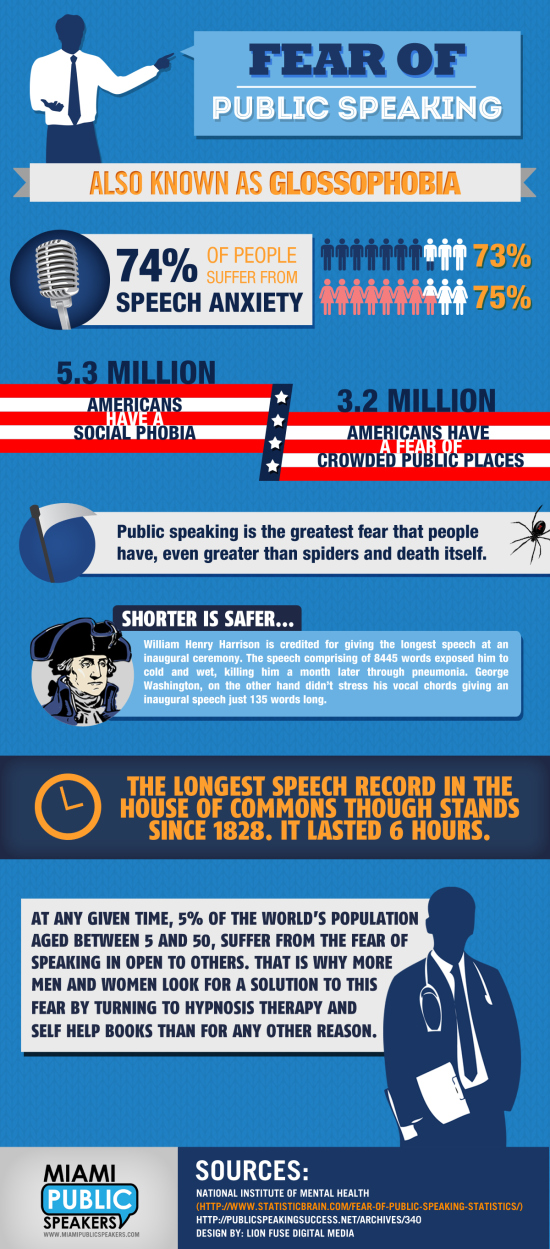Therapy For Public Speaking Anxiety
Welcome to a guide that might just change your life! Have you ever found yourself feeling nervous, sweaty palms and a racing heart at the mere thought of speaking in front of a crowd? If so, you’re not alone. Public speaking anxiety affects millions of people around the world, but fear not, there is a solution. Therapy for public speaking anxiety can empower you to conquer your fears and become a confident and captivating speaker. Let’s dive in and explore how therapy can transform your relationship with public speaking.
Picture this: you’re standing in front of a crowd, ready to deliver a speech that will leave your audience in awe. The spotlight is on you, and instead of feeling that familiar knot in your stomach, you’re calm and composed. You speak with clarity, confidence, and conviction. Sounds too good to be true? Well, therapy for public speaking anxiety can help you achieve just that. By working with a trained therapist, you can learn practical techniques to manage your anxiety and develop the skills needed to excel in public speaking.
Now, you might be wondering, what exactly does therapy for public speaking anxiety involve? Well, it’s more than just talking about your fear. Therapy sessions typically focus on identifying the root causes of your anxiety and addressing them through evidence-based techniques. This can include cognitive-behavioral therapy (CBT), which helps you reframe negative thoughts and beliefs, as well as exposure therapy, where you gradually face your fears in a controlled and supportive environment. With the guidance of a skilled therapist, you’ll learn to overcome your anxiety and unleash your true potential as a speaker.
So, if public speaking has you running for the hills, take heart. Therapy for public speaking anxiety can be your secret weapon to conquer your fears and become a confident communicator. In the following sections, we’ll explore different types of therapy, practical strategies, and tips to help you thrive in the spotlight. Get ready to transform your public speaking journey and leave your audience begging for more. Let’s dive in!

Therapy for Public Speaking Anxiety: Overcoming the Fear of Speaking in Front of Others
Public speaking anxiety, also known as glossophobia, affects many individuals, hindering their ability to confidently express their thoughts and ideas in front of others. Fortunately, therapy offers effective techniques to overcome this fear and build confidence in public speaking. In this article, we will explore the various types of therapy available for treating public speaking anxiety and delve into the benefits, tips, and strategies for success. Whether you’re preparing for an important presentation or seeking personal growth, understanding and addressing your public speaking anxiety can transform your abilities and boost your confidence.
Understanding Public Speaking Anxiety
Before diving into the different types of therapy available, it’s essential to understand the nature of public speaking anxiety. Many individuals experience a degree of nervousness before speaking publicly, which can be normal and even enhance performance. However, for those with public speaking anxiety, the fear and anxiety associated with speaking in front of others can be overwhelming, leading to a range of physical and psychological symptoms. These may include rapid heartbeat, clammy hands, dry mouth, negative self-talk, and avoidance behaviors.
The Role of Cognitive-Behavioral Therapy (CBT)
Cognitive-Behavioral Therapy (CBT) is a widely used and effective treatment for public speaking anxiety. It focuses on identifying and challenging negative thought patterns, beliefs, and self-perceptions that contribute to anxiety. Through CBT, individuals work with a therapist to reframe their thoughts, develop positive affirmations, and practice exposure exercises to gradually face their fears. By changing the way they think about public speaking and building confidence through systematic desensitization, individuals can address the root causes of their anxiety and develop effective coping strategies.
CBT for public speaking anxiety typically involves several stages. In the initial phase, the therapist helps individuals identify their negative thoughts and beliefs about public speaking, as well as any past experiences or traumas that may be contributing to their anxiety. Once these thoughts and triggers are identified, the therapist guides the individual in challenging and reframing them through evidence-based techniques, such as logical reasoning and thought-stopping. Over time, individuals learn to replace negative thoughts with more positive and realistic ones, ultimately reducing their anxiety in public speaking situations.
Exposure Therapy: Confronting Your Fear Head-On
Exposure therapy is another highly effective approach to treating public speaking anxiety. This therapy involves gradually exposing individuals to public speaking situations in a controlled and supportive environment. The goal is to desensitize the individual to their fears and build confidence through repeated exposure. Exposure therapy can take various forms, such as simulated presentations, role-playing exercises, or participating in public speaking groups or workshops.
During exposure therapy sessions, individuals work closely with a therapist to practice relaxation techniques, control their breathing, and modify their behavioral responses to anxiety. By confronting their fear in a safe and controlled setting, individuals gradually become more comfortable and confident in public speaking situations. Over time, they develop new associations with public speaking, replacing anxiety and fear with a sense of competence and accomplishment.
Group Therapy for Public Speaking Anxiety
Group therapy can be a valuable addition to individual therapy for public speaking anxiety. In a group setting, individuals have the opportunity to practice speaking in front of others, receive feedback, and gain support from peers who are facing similar challenges. Group therapy provides a safe and non-judgmental space to discuss fears, share experiences, and learn from others’ strategies for overcoming public speaking anxiety.
In group therapy sessions, participants engage in various activities and exercises that promote public speaking skills and build confidence. For example, they may take turns delivering short presentations, participate in group discussions, or engage in improvisation exercises. The supportive environment of a group setting fosters a sense of camaraderie and provides opportunities for individuals to learn from others’ successes and challenges. Group therapy offers a unique platform to develop valuable public speaking skills while receiving encouragement and support from like-minded individuals.
Tips for Overcoming Public Speaking Anxiety
In addition to therapy, there are several tips and strategies that can help individuals overcome public speaking anxiety:
1. Preparation is key: Thoroughly research and prepare your topic to boost your confidence.
2. Practice, practice, practice: Rehearse your speech or presentation multiple times to become familiar with the content.
3. Visualize success: Imagine yourself speaking confidently and receiving positive feedback from the audience.
4. Utilize relaxation techniques: Deep breathing, progressive muscle relaxation, and mindfulness can help calm your nerves.
5. Start small: Begin by practicing public speaking in front of a trusted friend or family member before progressing to larger audiences.
6. Seek feedback: Request constructive feedback from others to identify areas for improvement and build your skills.
7. Focus on your audience: Shift your attention away from your own anxiety and instead focus on connecting with your audience and delivering your message effectively.
By implementing these strategies and seeking therapy, individuals can gradually overcome public speaking anxiety and develop the confidence and skills needed to excel in public speaking engagements. Remember, public speaking is a skill that can be learned and improved upon with practice and support.
The Benefits of Overcoming Public Speaking Anxiety
Overcoming public speaking anxiety can have a profound impact on both personal and professional aspects of life. Here are some key benefits:
1. Enhanced career prospects: Effective public speaking skills are highly valued in many professions, including sales, leadership, teaching, and public relations. By conquering public speaking anxiety, individuals open doors to new opportunities and career advancement.
2. Improved self-confidence: Overcoming public speaking anxiety boosts self-esteem and self-assurance in various social situations. It allows individuals to express their ideas and contribute confidently to discussions.
3. Building strong relationships: Effective communication is crucial for building meaningful relationships. Overcoming public speaking anxiety enables individuals to articulate their thoughts, engage in productive conversations, and connect more deeply with others.
4. Increased credibility: Confident public speakers are perceived as more credible and knowledgeable. By overcoming anxiety, individuals establish themselves as authorities in their fields, gaining respect and recognition from their peers.
5. Personal growth: Conquering public speaking anxiety is an empowering process that fosters personal growth and self-development. It enables individuals to step out of their comfort zones, face their fears, and achieve new levels of success.
Remember, therapy for public speaking anxiety is a journey that requires patience, persistence, and a willingness to step outside of your comfort zone. By seeking the appropriate therapy and implementing the strategies outlined, individuals can overcome their fears and become proficient and confident public speakers.
Key Takeaways: Therapy for Public Speaking Anxiety
- Therapy can help individuals overcome public speaking anxiety.
- Therapists use techniques like cognitive-behavioral therapy to address the root causes of the anxiety.
- Through therapy, individuals can learn practical strategies to manage anxiety and improve their public speaking skills.
- Therapy sessions provide a safe and supportive space for individuals to practice speaking in front of others.
- It’s important to seek help from a trained therapist who specializes in treating public speaking anxiety.
Frequently Asked Questions
Public speaking anxiety can be a challenging issue to overcome, but therapy can provide effective strategies and support. Here are some commonly asked questions about therapy for public speaking anxiety:
1. How can therapy help with public speaking anxiety?
Therapy provides a safe and supportive environment where individuals can explore the root causes of their public speaking anxiety. A therapist can guide you in developing coping mechanisms and strategies to manage anxiety symptoms. Through therapy, you can learn techniques to calm your nerves, reframe negative thoughts, and build confidence in your public speaking abilities.
Therapy sessions may involve various evidence-based approaches, such as cognitive-behavioral therapy (CBT) or exposure therapy. These approaches help you identify and challenge negative thought patterns and gradually expose you to public speaking situations to desensitize your anxiety response. With the support and guidance of a therapist, you can work towards reducing your anxiety and gaining more control over your public speaking experiences.
2. How long does therapy for public speaking anxiety typically last?
The duration of therapy for public speaking anxiety can vary depending on the individual and the severity of their anxiety. Short-term therapy can range from a few weeks to a few months, while more long-term therapy may last several months or longer. The frequency of therapy sessions may also depend on your specific needs and availability.
It is important to remember that therapy is a personalized process, and progress may take time. Your therapist will work with you to develop a treatment plan tailored to your individual goals and needs. Together, you will determine the most appropriate timeline for therapy and regularly assess your progress along the way.
3. Will therapy completely eliminate my fear of public speaking?
Therapy can significantly reduce your fear and anxiety surrounding public speaking, but elimination of fear entirely may not be a realistic expectation. Public speaking anxiety is a common fear experienced by many individuals, and it is normal to feel some level of nervousness before speaking in front of an audience.
The goal of therapy is to help you manage and minimize the impact of anxiety on your public speaking experiences, rather than completely eliminating fear. Through therapy, you can learn techniques to regulate your anxiety, enhance your public speaking skills, and develop a more positive mindset. Over time, with practice and continued therapy, your anxiety may become more manageable, allowing you to confidently express yourself in public speaking situations.
4. Can therapy be done online or does it have to be in-person?
Therapy for public speaking anxiety can be conducted in various formats, including both in-person and online sessions. In-person therapy involves meeting with a therapist face-to-face in a clinical setting. Online therapy, also known as teletherapy or telehealth, allows you to have therapy sessions remotely through video calls or phone calls.
Both in-person and online therapy can be effective in treating public speaking anxiety. Online therapy offers the convenience of accessing therapy from the comfort of your own home and can be a suitable option for individuals who may have limitations or difficulties attending in-person sessions. It is important to discuss with your therapist which format works best for you and your needs.
5. Can therapy for public speaking anxiety also help with other areas of my life?
Yes, therapy for public speaking anxiety can have positive effects on other areas of your life. The skills and strategies you learn to cope with anxiety in public speaking situations can be transferable to other areas where anxiety may be present, such as presentations, interviews, or social gatherings.
Therapy can also help you develop broader communication and self-confidence skills that can have a positive impact on your personal relationships, work life, and overall well-being. The benefits of therapy extend beyond public speaking anxiety, empowering you to navigate various situations with greater ease and self-assurance.
Summary
Having anxiety when speaking in public is common, but therapy can help you overcome it. There are different types of therapy for public speaking anxiety, such as cognitive-behavioral therapy and exposure therapy. In cognitive-behavioral therapy, you learn to change negative thoughts about public speaking and develop new strategies to manage your anxiety. Exposure therapy involves gradually facing your fear of public speaking in a safe and supportive environment. Both types of therapy can be effective in reducing public speaking anxiety and improving your confidence.
Remember, everyone gets nervous when speaking in public, so you’re not alone. It’s important to practice and prepare for your speeches or presentations. Deep breathing exercises and positive self-talk can also help calm your nerves. Seeking help from a therapist who specializes in public speaking anxiety can provide you with tools and techniques to manage your anxiety and become a more confident public speaker.


